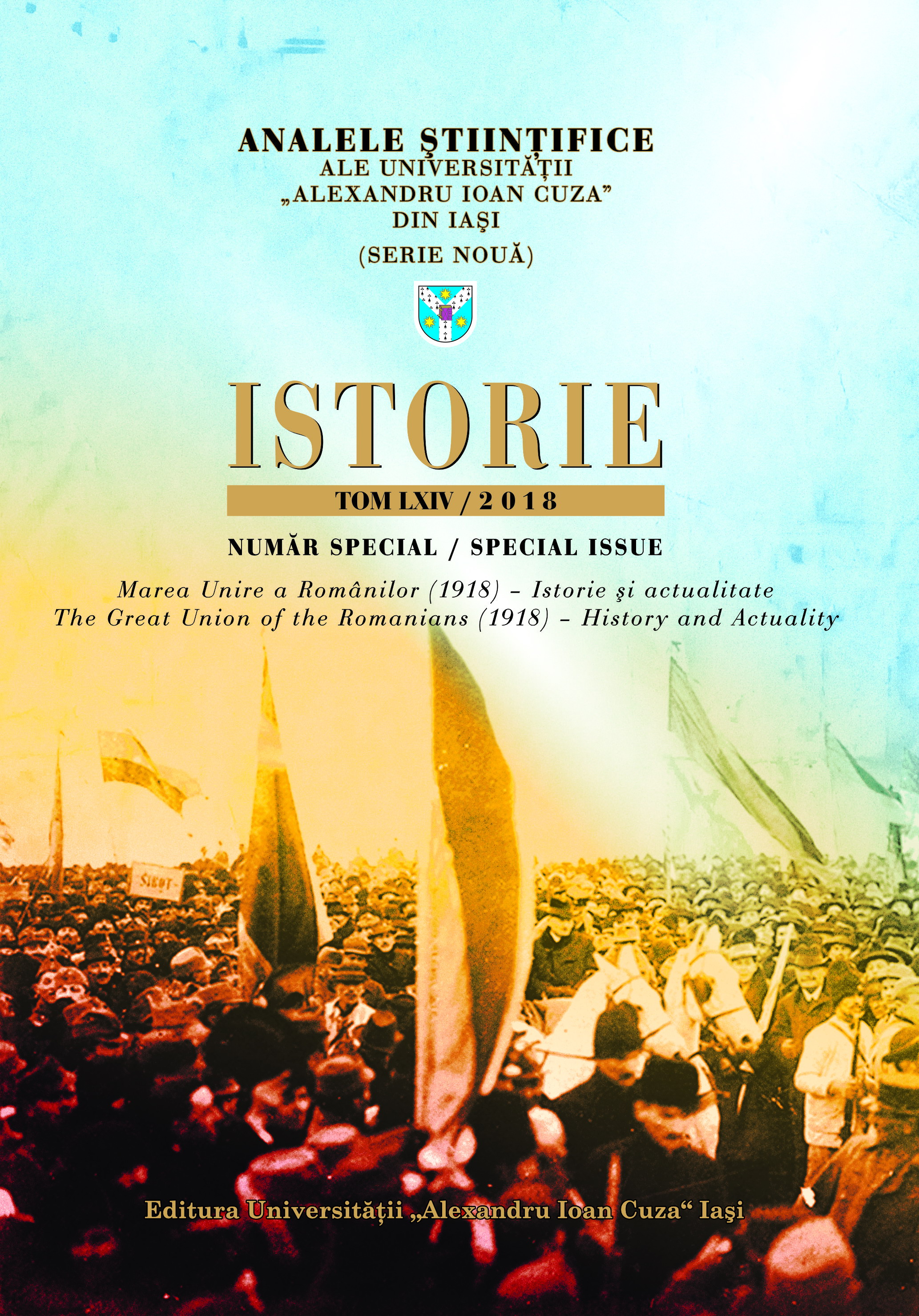Problema emancipării evreilor români în contextul realizării Marii Uniri
The issue of the emancipation of the Romanian Jews in the context of the Great Union achievement
Author(s): Carol IancuSubject(s): History, Cultural history, Jewish studies, Social history, Pre-WW I & WW I (1900 -1919), Interwar Period (1920 - 1939)
Published by: Editura Universităţii »Alexandru Ioan Cuza« din Iaşi
Keywords: Jews; Romania; emancipation; Berlin treaty; Paris peace conference;
Summary/Abstract: After two years of “armed neutrality”, Romania joined the countries of the Entente against Austria-Hungary from August 27, 1916. Due to the shifting course of the war – after successes in Transylvania against the Hungarians, defeats against the German army and the occupation of the capital and of two thirds of the country –, Romania had to conclude a truce with the Central Powers (December 9, 1917 and a separate peace, through the Treaty of Bucharest (May 7, 1918) before mobilizing the army (November 10, 1918) for one last victorious campaign. At the end of the war, the country doubled its surface and population: Bessarabia, Bukovina and Transylvania returned to their “motherland”, thus creating the reunited Romania or the Greater Romania. These turning points also affected the status of Romanian Jews, an estimated 239,967 souls according to the census of 1912, accounting for 3.3% of the population, among whom 23,000 were on the front at the beginning of the hostilities. The Official Gazette, through the nominal lists of the Jewish soldiers – dead (882), wounded (740), prisoners (449), disappeared (3.043) and decorated (825) – summarizes the importance of their participation in the battles for their country. Gone to war as “foreigners not subjected to a foreign protection”, they had all the reasons to hope for an impartial solution at the end of the battles. Nevertheless, the long awaited citizenship still had many obstacles to overcome: while in the country, three law-decrees were promulgated in 1918-1919 in order to regulate their situation, the problem was brought up for the first time internationally within the Treaty of Bucharest. However, only during the Paris Peace Conference, emancipation was consecrated definitively. The current text undertakes to examine the different phases of the fight for emancipation, taken in the country and abroad, from the moment Romania joined the war until the Paris Peace Conference (January 1919).
Journal: Analele Ştiinţifice ale Universităţii »Alexandru Ioan Cuza« din Iaşi. Istorie
- Issue Year: 2018
- Issue No: 64
- Page Range: 469-489
- Page Count: 21
- Language: Romanian
- Content File-PDF

